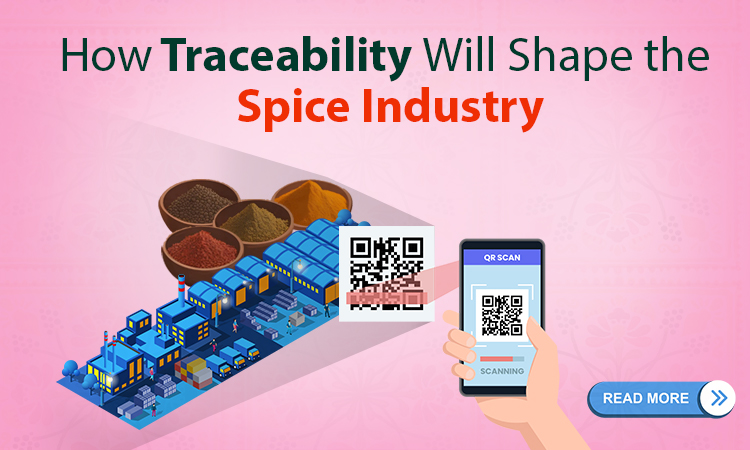Today, since consumers have become more aware of their health, the sources of their food and the sustainability of production methods, traceability has become an essential component of the food industry. Customers want to know how their food has reached their plate from farmland to guarantee transparency, quality, and ethics. Traceability is going to transform the spice market, where unusual aromas from far-off regions entice taste buds and give complexity to cuisines around the world. Let’s examine how traceability is expected to influence the spice market, guaranteeing consumer trust, sustainability, and authenticity.
The Essence of Traceability in Spices
Remember the vibrant colors of turmeric powder on a dish or the scent of freshly ground cinnamon filling the air. Spices have fascinated people for ages, giving food preparations more taste, color, and complexity. However, getting spices from the farm to the market may be a complicated process that takes a long time and involves a lot of middlemen. Because of its intricacy, there is a risk to quality and customer trust as adulteration, mislabeling, and unethical acts can flourish.
By enabling stakeholders to follow the path of spices at each stop throughout the supply chain, traceability helps to overcome these obstacles. It entails keeping track of and recording details like the origins of the spices, farming techniques, methods of processing, and transportation. Stakeholders can obtain real-time data by utilizing blockchain, RFID (Radio-Frequency Identification), and QR codes. These guarantee accountability and transparency.
Ensuring Authenticity and Quality
The assurance of authenticity and quality is one of the main advantages of traceability in the spice sector. Customers may confirm the origin of spices and make sure they come from reliable producers who meet quality standards by using traceability measures in place. When a consumer buys saffron, for instance, they may verify its authenticity and purity by tracking it back to the exact area where it was grown.
Furthermore, traceability makes it possible to identify adulteration or contamination early on. Deviations from quality standards can be quickly discovered and remedied by monitoring every stage of the supply chain to preserve the integrity of spices and secure consumer health.
Empowering Sustainable Practices
In the spice industry, traceability helps sustainable practices while promoting product quality. By granting access to the production process, interested parties can keep a check on things like labor standards, agricultural methods, and environmental effects. Fairtrade practices, ethical standards observance, and responsible sourcing are all encouraged by this transparency.
For example, traceability might draw attention to instances of labor abuse or unsustainable farming methods, resulting in remedial action and the development of a more sustainable supply chain. Additionally, traceability programs can strengthen small-scale farmers’ positions and foster direct connections between farmers and consumers.
Building Consumer Trust and Loyalty
Trust is essential at a time when conscious buying is the norm. In addition to increasing transparency, traceability programs in the spice business foster customer loyalty and confidence. To show their dedication to social responsibility, sustainability, and quality, brands can provide consumers access to comprehensive information about the source and manufacture of spices.
Many consumers want proof that the goods they buy are consistent with their values, be it promoting fair trade, protecting biodiversity, or reducing environmental impact. Brands may use traceability as a potent weapon to express their beliefs and set themselves apart in a crowded market.
The Future of Traceability in Spices
The significance of traceability in the spice sector will only increase with the advancement of technology and the changing demands of consumers. Businesses that use traceability can seize chances for innovation and competitive advantage in addition to reducing risks related to supply chain management and quality control.
In the future, technologies like artificial intelligence (AI) and the Internet of Things (IoT) might improve supply chain efficiency, provide predictive analytics, and further improve traceability capabilities.
Conclusion
Traceability is not merely a buzzword but a transformative force shaping the future of the spice industry. Through collaborative efforts and technological innovation, the spice industry can harness the power of traceability to create a more connected and responsible world.
Earthen Connect is an online seller of natural spices. We use food traceability to ensure the authenticity of our spices.

